I should go ahead and admit up front that I’m probably going to say the wrong thing, or at least say something the wrong way. This is NOT an effort to play my version of the “It’s SO Hard To Be A White Guy” card. It’s hard to be ANYONE these days, but if we were to somehow rank life’s complexities by demographic categories, “Old Straight White Guy” doesn’t even make the Top 10.
At the same time, I respectfully suggest we lose something important in the conversation when we’re afraid to discuss issues, perceptions, or interpersonal dynamics for fear we’ll be misunderstood or criticized. (Honestly, if I can’t embrace criticism, I should probably reconsider maintaining a website with “Education” in the title.)
A few days ago, one of my students – a Black girl around 16 or 17 – came to my room during my planning period. She was on her way to the office but wanted to vent about another teacher. While our faculty is more diverse than most, this particular educator also happens to be a straight white male.
If you’re in education, you know the tricky balancing act between allowing students to express their frustrations and appearing to condone their criticisms. I listened to her, asked a few clarifying questions, and reminded myself that while she was no doubt 100% sincere in what she was saying, teenagers aren’t generally renowned for their objectivity or accuracy.
Then again, it’s not like humans of ANY age are all that reliable when it comes to factual recall of emotionally loaded situations.
She was frustrated with this teacher’s decision to give her zeroes on several assignments he believed she’d allowed her friends to copy. Between you and me, I think it’s entirely possible she’d shared the work in question with her friends. (She’s done it in my class before.) I also think it’s likely this particular teacher was frustrated by his limited options for discouraging this widespread issue in our building and may not have been overly diplomatic about it.
Neither of which I thought appropriate to share with the young lady in front of me.
It’s what I DID say that left me feeling a bit out of touch – perhaps even idiotic.
For over two decades, I’ve been a fan of focusing on what WE can control. Yes, you’re angry with your mom. You feel what you feel – and that’s OK. You’re probably not going to change HER with your outrage however – so what parts can YOU control? Yes, these district policies are inane. Experience tells me that explaining this to the same superiors who didn’t seem to understand what I was talking about last time probably won’t alter them, and may end up categorizing me as a complainer and a generally negative person. So… what things CAN I control?
I’m sure you get the idea.
It was in this spirit that I suggested to my young lady that she might accomplish more if she took a few breaths and tried to approach this particular teacher more diplomatically once she’d calmed down. I know from experience that when teenagers are argumentative, it’s easy for teachers to get defensive – especially when they’re relatively new to the profession and come from workplace worlds where civility is the norm. Maybe your superior barks at you a bit, but you’re certainly not accustomed to someone half your age speaking to you in “that tone.” In short, maybe her approach could use some tweaking…?
In and of itself, I don’t think this is bad advice. Her response, however, made me rethink my entire framework.
“I’m not gonna put on fronts just so some white man is more comfortable when I know I’m right.”
I paused for a few seconds, although it felt like several hours.
“OK, I hear you. That’s fair. I’m not suggesting you be fake or play games – I just think there’s a time and place to try the calm, ‘professional’ approach because it’s appropriate and possibly more effective. But yeah, I definitely don’t want you to feel like you have to giggle and twirl your hair so he’s more comfortable.”
It wasn’t a terrible recovery on my part, but I’m still not sure how I feel about the whole thing.
I avoided taking a position on the other teacher’s policies, although I personally don’t like mixing grades with what is essentially a discipline issue (“cheating”), but I walked with her the rest of the way down to the office and hooked her up with an administrator I hoped would help her find an appropriate solution. I can’t solve everything, but I can advocate with the powers-that-be and show my support for her as a person.
It’s not the situation itself I’m wrestling with several days later – that’s above my pay grade. What’s nagging at me is the weird tension between what I think of as legitimate social-emotional learning** and some unintended variation of “you should smile more” or “have you tried acting ‘whiter’?”
Am I trying to pacify my “angry Black girls”? If so, am I doing it for their long-term happiness and success or my short-term comfort and convenience?
And yes, this is the part where I start to worry about being misunderstood.
I don’t want any of my students (but particularly my Black girls) to feel compelled to hide their feelings or their personalities in order to accommodate others (especially white men). At the same time, helping young people learn how to communicate more effectively and manage their emotions in productive ways is an entirely legitimate function of public education. I didn’t intend to suggest that she schmooze or play games to get what she wanted from her teacher or anyone else. I thought I was helping her learn how to handle an academic situation using what I think of as academic norms.
The fact that she didn’t easily distinguish between the two may simply be a reflection of her youth and her frustration at the situation. Nevertheless, it still bothers me that anything I said could be perceived as suggesting she needed to smile more and hide her feelings. It especially bothers me that I can’t say with absolute certainty (as an old straight white guy) that there’s no overlap between the two messages – between “professional behavior is important” and “stop being yourself so much.”
Whenever we cover “Indian Boarding Schools” in the late 19th century, I point out that these institutions weren’t just about teaching Amerindian youth how to speak English or how to do math. They were about changing their clothing, their hair, their language, their cultural norms, and their very beings. They were about making them “white.” This wasn’t a secret or something we can only discern through careful historical analysis; it was their stated goal and primary reason for existing.
We no longer openly promote such values in modern public schooling, and students don’t generally live here full time by force. We don’t cut their hair or tell them what shoes to wear (er… usually). I like to think we strive for loftier things like academic engagement and intellectual inspiration, but we have practical aspirations as well. I’d love for my kids to be happy as adults, but I’d also like to see them function effectively in society. Surely there are pathways towards personal fulfillment which still allow them to pay their own bills and take care of their families.
For many of my students, their skin color is already an impediment to that. Yes, things are in many ways much better than even a few generations ago, but there’s no denying that systemic racism and socially entrenched prejudices are still very much a thing. Then there’s the hair… the first names… the vernacular… the clothing choices…
And yes, there’s the tone. The volume. The perceived attitudes.
I’M NOT CRITICIZING ANY OF THOSE CHARACTERISTICS OR CHOICES. I’m acknowledging that as a society, we still have a ways to go with absolute and unbiased acceptance of one another. I don’t want my kids to sacrifice themselves on the altar of “if only they’d bothered to get to know the real me.” I want them to revolutionize the system from the inside, as it were, by first conquering it, THEN transforming it.
But I’m not them. And I know enough history to recognize that well-intentioned white guys throughout the centuries have believed with great conviction that they “know what’s best” for the marginalized. We’ve insisted they change their voices to better match our own. Adjust their expectations to accommodate our concerns. Trust our judgment about what’s most likely to be effective with people like, well… us.
I don’t think this is evil, or intentionally racist. I believe there’s a time to be strategic about changing hearts, minds, or grades. I also don’t think the teacher who first antagonized my young lady was doing so out of racist or sexist attitudes, subconscious or otherwise. This isn’t a “good guys” and “bad guys” scenario.
It’s just that I’m no longer entirely comfortable in my long-held convictions about what it means to be “successful,” or “professional,” or even “polite.” And maybe instead of wrestling with how to best assuage our “angry Black girls,” we should work a little harder at giving them less to be angry about.
** “Social-Emotional Learning”: Conservatives have successfully loaded this term with all sorts of outrage and fear, when in reality it simply means teaching young people how to manage their own emotions and interactions with others with a little maturity so they can function in school, the workplace, or society, without responding to everything like a spoiled toddler. As the right-wing has increasingly embraced fit-throwing, name-calling, perpetual victimhood, and violence as “the moral high ground,” it’s understandable they’d be troubled by the expectation that people learn to “grow up” a bit as they age. That shouldn’t mean we’re afraid to keep talking about it.

 If you keep up with education news at all, you know all the usual struggles – class sizes, standardized testing, general hostility towards educators by whoever’s looking to score points with conservatives that week, etc. One of the biggies is the ongoing battle to keep the arts in public education. Every time budgets are tight (and they usually are), one of the first things to go is music, or the visual arts, or drama. Even when those classes survive, they’re the first to become “dumping grounds” for students who’ve shown no particular interest in anything but have to be SOMEWHERE. “Hey, anyone can draw a picture or hit a drum, right?”
If you keep up with education news at all, you know all the usual struggles – class sizes, standardized testing, general hostility towards educators by whoever’s looking to score points with conservatives that week, etc. One of the biggies is the ongoing battle to keep the arts in public education. Every time budgets are tight (and they usually are), one of the first things to go is music, or the visual arts, or drama. Even when those classes survive, they’re the first to become “dumping grounds” for students who’ve shown no particular interest in anything but have to be SOMEWHERE. “Hey, anyone can draw a picture or hit a drum, right?” One of the coaches in my district approached me last week and asked if I had a moment to talk about a few students. Each of them had come pretty close to passing my class but had fallen short largely due to things entirely within their control – not turning in study guides for easy points, not participating in review sessions, etc.
One of the coaches in my district approached me last week and asked if I had a moment to talk about a few students. Each of them had come pretty close to passing my class but had fallen short largely due to things entirely within their control – not turning in study guides for easy points, not participating in review sessions, etc.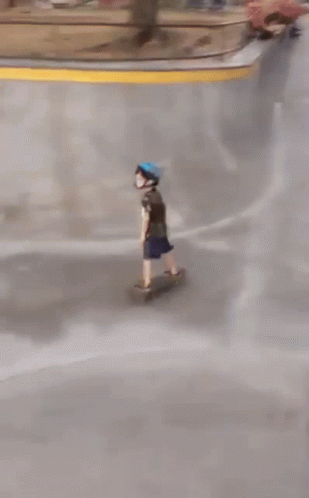 The first was how graciously he approached the issue. He wanted to make sure there was nothing suggesting pressure from him or anyone else to do anything I might be uncomfortable with or consider unethical – and I think he meant it. These kids weren’t athletic superstars or anything. I teach freshmen, and while they may have potential, none of them are critical to the success of anything happening on a track, field, or court next year. In his mind, it was about what being involved and playing sports MIGHT do for them overall – including, but not limited to, academically.
The first was how graciously he approached the issue. He wanted to make sure there was nothing suggesting pressure from him or anyone else to do anything I might be uncomfortable with or consider unethical – and I think he meant it. These kids weren’t athletic superstars or anything. I teach freshmen, and while they may have potential, none of them are critical to the success of anything happening on a track, field, or court next year. In his mind, it was about what being involved and playing sports MIGHT do for them overall – including, but not limited to, academically.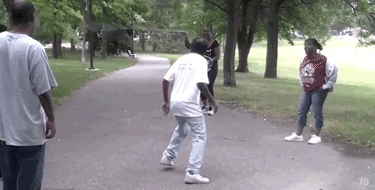 The second reason I considered his question is that the kids in question are genuinely good kids, at least most of the time. They’ve each shown flashes of far more ability than their grades would suggest. I know something of their hopes and visions for their futures, and while ambitious, they’re all certainly plausible. (None of them are counting on the NBA or YouTube stardom to get them through adulthood.) These weren’t kids with a 12% or a history of serious discipline problems; they just didn’t always show the focus or determination one might hope.
The second reason I considered his question is that the kids in question are genuinely good kids, at least most of the time. They’ve each shown flashes of far more ability than their grades would suggest. I know something of their hopes and visions for their futures, and while ambitious, they’re all certainly plausible. (None of them are counting on the NBA or YouTube stardom to get them through adulthood.) These weren’t kids with a 12% or a history of serious discipline problems; they just didn’t always show the focus or determination one might hope. Finally, there was my stubborn belief in the power of extracurriculars in kids’ lives. I’ve had the honor of working closely with
Finally, there was my stubborn belief in the power of extracurriculars in kids’ lives. I’ve had the honor of working closely with 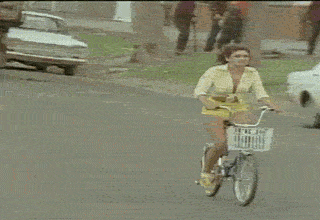 So the question before me was one of probabilities and teacher philosophy. Coach was quite transparent about the fact that he couldn’t guarantee anything either way. While he hoped he’d be able to work with these kids as they continued through high school, there was no certainty they’d stay on the team. Playing or not, there was no way to know if they’d take advantage of the extra support and improve academically going forward. It’s possible I might nudge their grades up a few percentage points and all I’d be doing was feeding their delusions about how school works.
So the question before me was one of probabilities and teacher philosophy. Coach was quite transparent about the fact that he couldn’t guarantee anything either way. While he hoped he’d be able to work with these kids as they continued through high school, there was no certainty they’d stay on the team. Playing or not, there was no way to know if they’d take advantage of the extra support and improve academically going forward. It’s possible I might nudge their grades up a few percentage points and all I’d be doing was feeding their delusions about how school works.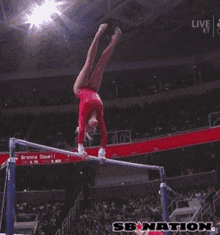 There was one other reality to consider. While there’s no doubt in my mind any of these kids could have passed my class with a little more effort, the true difference between a 57% and a 61% is painfully subjective and impacted by any number of factors. I’d love to tell you that my English instruction and assessment is so data-driven and pedagogically holy that every tenth of a percentage point reflects a very specific level of skills and knowledge in each student, but
There was one other reality to consider. While there’s no doubt in my mind any of these kids could have passed my class with a little more effort, the true difference between a 57% and a 61% is painfully subjective and impacted by any number of factors. I’d love to tell you that my English instruction and assessment is so data-driven and pedagogically holy that every tenth of a percentage point reflects a very specific level of skills and knowledge in each student, but  If I do it, I told my colleague, the students would have to be fully informed of the decision (as opposed to thinking they’d somehow “slid by” at the last minute). This isn’t about wanting credit for the decision (I’m not sure enough of myself to feel too pious about it). It’s about wanting them to understand the reasoning behind it and the opportunity they have to take advantage of the moment. “There are adults in this building who believe you have better things in you than what you’ve shown so far and who want to give you the chance to express them. We’re trying to open the door a bit; what you do with it is up to you.”
If I do it, I told my colleague, the students would have to be fully informed of the decision (as opposed to thinking they’d somehow “slid by” at the last minute). This isn’t about wanting credit for the decision (I’m not sure enough of myself to feel too pious about it). It’s about wanting them to understand the reasoning behind it and the opportunity they have to take advantage of the moment. “There are adults in this building who believe you have better things in you than what you’ve shown so far and who want to give you the chance to express them. We’re trying to open the door a bit; what you do with it is up to you.” I wrote recently about
I wrote recently about 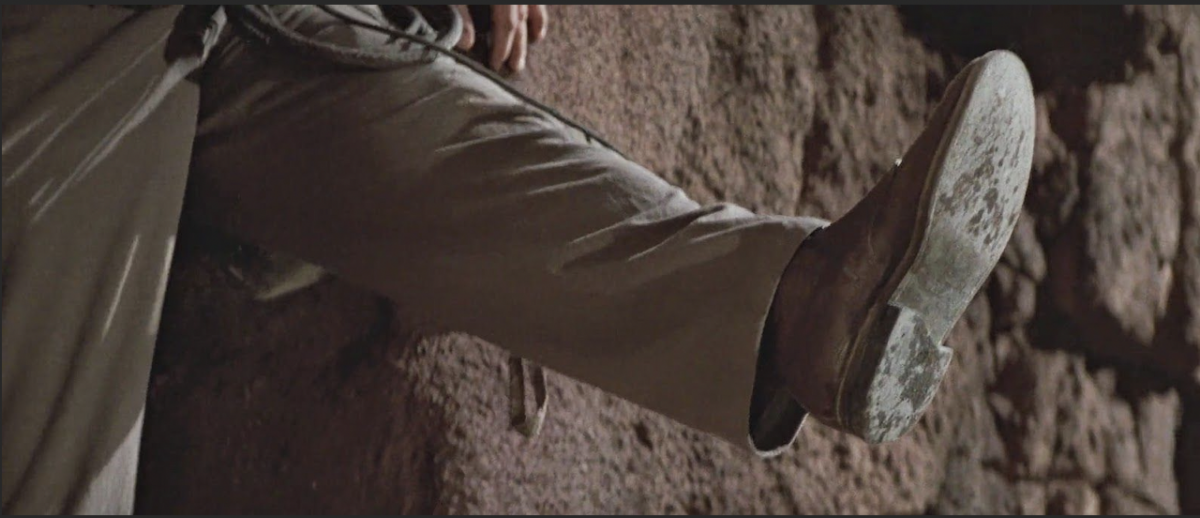 There are so many things about teaching that are difficult to explain to those outside the field. (That may be true of other professions as well, but this is the one I know best.) Even within the world of public education, it’s tricky to balance honesty with optimism, or transparency with teamwork. Too much venting can feed on itself and become entrenched cynicism. An excess of chipper determination, on the other hand, risks building endless castles on the sands of delusion.
There are so many things about teaching that are difficult to explain to those outside the field. (That may be true of other professions as well, but this is the one I know best.) Even within the world of public education, it’s tricky to balance honesty with optimism, or transparency with teamwork. Too much venting can feed on itself and become entrenched cynicism. An excess of chipper determination, on the other hand, risks building endless castles on the sands of delusion.